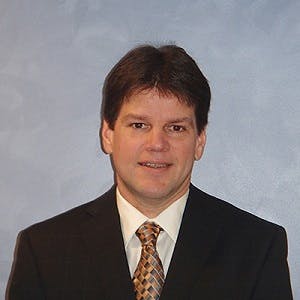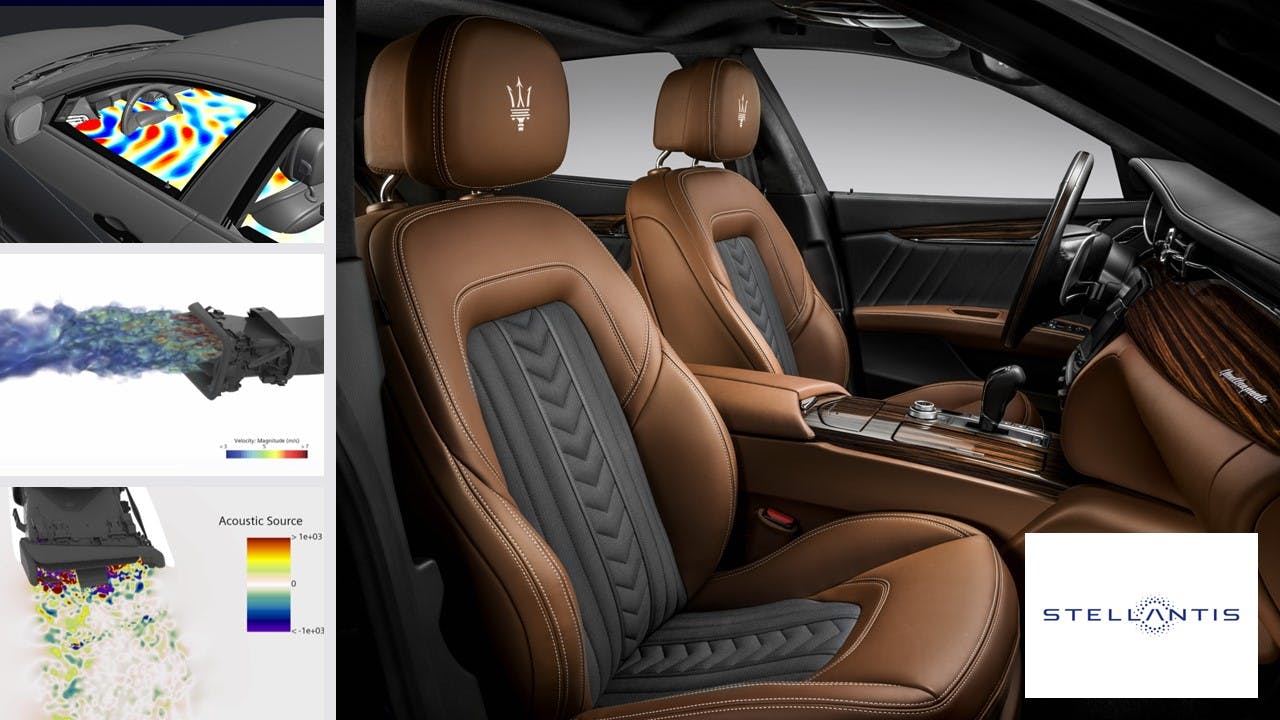While HVAC systems play a crucial role in ensuring thermal comfort, they often introduce acoustic discomfort as a trade-off. Especially in electrified vehicles, HVAC noise is more audible as its silent electric motor doesn’t mask unwanted noises. Achieving a balance between cabin comfort, thermal performance, and acoustics is essential for enhancing the overall customer perception of the vehicle.
This webinar looks at the impact of flow-induced noise on the acoustic comfort of the passenger. It focuses on methods to reduce simulation time while maintaining accurate prediction of the noise source. Register now!
What you will learn:
Our first guest speaker is Mr. Binoj K. George from Stellantis. He will present recent work on vehicle HVAC duct noise – using a hybrid method that compares test results and simulation data with a fast turnaround time. Highlighting the impact of design decisions on HVAC duct noise, the Stellantis expert demonstrates how to explore methods for early acoustic analysis and accurately capture noise sources while evaluating the impact of design options.
3D Aeroacoustics expert, Korcan Kucukcoskun, complements the speech by focusing on flow-induced noise and its propagation into the vehicle cabin. He shares insights into using perturbed convective wave equations with hybrid CFD to effectively consider the acoustic field in the cabin in the frequency domain.
Key topics and takeaways:
- Explore methods for early acoustic analysis of vehicle HVAC ducts
- Compare simulation results with physical testing for improved design insights
- Understand the benefits of hybrid computational fluid dynamics (CFD) methods
- Capture precise noise sources while maintaining efficient design iterations
- Explore the propagation of flow-induced noise from the HVAC system into the cabin
- Gain insights into minimizing noise transmission and enhancing passenger comfort
Seznamte se s přednášejícími

Fred Ross
Automotive Business Development Manager, Fluids and Thermal Domain
Fred started with computational fluid dynamics back in 1989 to help pioneer the usage of CFD for automotive applications. This includes extensive experience working with customers on applications such as virtual powertrain simulation, vehicle thermal management, aerodynamics, and thermal comfort. He helped replace and complement tests to look at digital development to help reduce time and cost to bring new innovative ideas to the market.

Binoj K George
HVAC CFD Simulation Engineer
Binoj K. George has a master’s degree in Thermal Power Engineering and 5 years of experience in Cabin Airflow/Thermal/Aeroacoustics CFD simulations. He is currently working for Stellantis Automobiles. Specialized in Aeroacoustics for Automotive HVAC airflow components, he has developed a Duct Aeroacoustics simulation methodology.

Korcan Kucukcoskun
Product Manager Simcenter 3D Solutions
Korcan Kucukcoskun has a Ph.D. in Aeroacoustics and more than 10 years of experience in 3D acoustics simulation. He specializes in helping users find ways to accurately model and simulate their products and ultimately reduce the noise and vibration these products produce.
